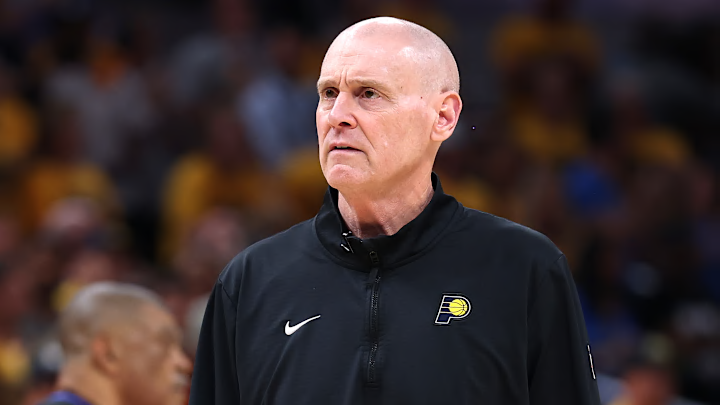The Indiana Pacers' depth has been one of their biggest strengths in recent years, but it may soon lead to their fatal downfall. In this day and age of the NBA, having too many good players may be a looming problem for teams as many of them are due for new contracts.
Specifically for the Pacers, their championship window could be closing before it ever really opened, and it's not even their fault.
Indiana has constantly hit on draft choices, trades, and signings in the past few years. This is especially true for players like Tyrese Haliburton, Obi Toppin, and Aaron Nesmith, who have all excelled since getting traded to Indiana and were each a big part of the team's latest NBA Finals run.
The Pacers have done such a good job of building their team in the modern NBA, that some would even say they are changing the game. However, in an unfortunate development, they may soon be punished for doing everything right.
Under the NBA's new CBA, teams are terrified of becoming too expensive and having to face daunting penalties of being in the first or second apron (i.e., losing ability to trade future first-round picks, aggregate outgoing salaries in potential trades, and no longer being able to use the taxpayer mid-level exception, among others).
This is exactly what happened to the Boston Celtics. Roughly one year after winning their 18th NBA championship, they essentially had no choice but to move on from key players like Jrue Holiday, Kristaps Porzingis, Al Horford, and Luke Kornet this past offseason.
Granted, they were in a completely different financial situation than the Pacers given just how much more expensive their payroll was. But even so, this is a cautionary tale Indiana must keep in mind as it could be among the next few teams forced to break it up to remain financially flexible.
The Pacers may be forced to say good-bye to some key players
It is no secret that the Pacers have been trying to avoid paying the luxury tax, which they haven't done in two decades.
This was a key story ahead of Myles Turner's free agency, and it remains one during the on-going Bennedict Mathurin contract saga. However, sooner or later, they may have to make a decision, and it won't be an easy one.
It's still very far away, but as it stands, the Pacers only have two players under contract for the 2028-29 season: Tyrese Haliburton and T.J. McConnell (team option), according to Basketball Reference. This means that, within the next few years, Indiana will have nearly all of its players eligible for new contracts. And, given the team's recent success, most of these players should be in line for a raise.
The Pacers are actively avoiding the luxury tax, but if they want to keep their core together, they will have to be willing to spend more than they want to.
This particularly includes Mathurin and Nesmith, two players the Pacers should be able to comfortably pay. They were each crucial in Indiana's latest playoff run, and they should each continue to be important to its success for the long haul. However, potential apron penalties could force the team to move on from one or both of them within the next year.
Indiana's problem is not overpaying for stars. Instead, it's the exact opposite.
Heading into the 2025-26 NBA season, the Pacers' $183.9 payroll is the 10th-lowest in the league, according to Basketball Reference. However, they have another major problem that really shouldn't be one: they have become too good at developing players, and it's likely going to cost them in the near future.
The Pacers are doing things the right way, and being one win away from winning it all in 2025 is proof of that. However, the rules suggest otherwise. This is a major problem the league has created, and it's completely unfair to teams like the Pacers, who should be able to reap the benefits of essentially mastering team-building.
As it stands, the new CBA is doing more harm than good for the NBA and its teams. It's already made an impact, and it will continue to do so until something changes.
If nothing happens, the Pacers will soon feel the CBA's effects firsthand and may be forced to say good-bye to many of their key players.
